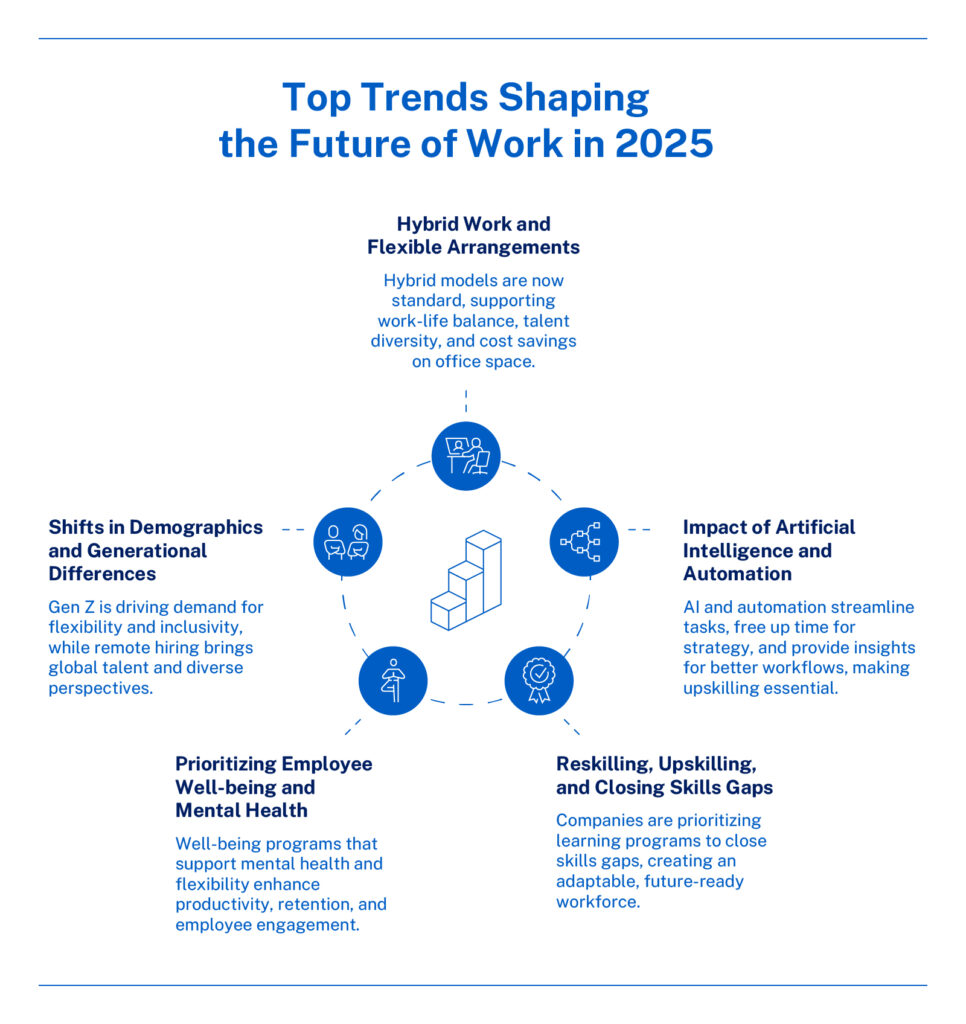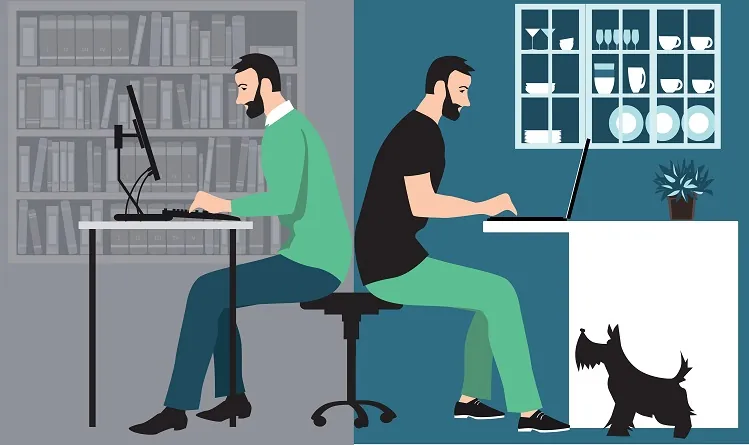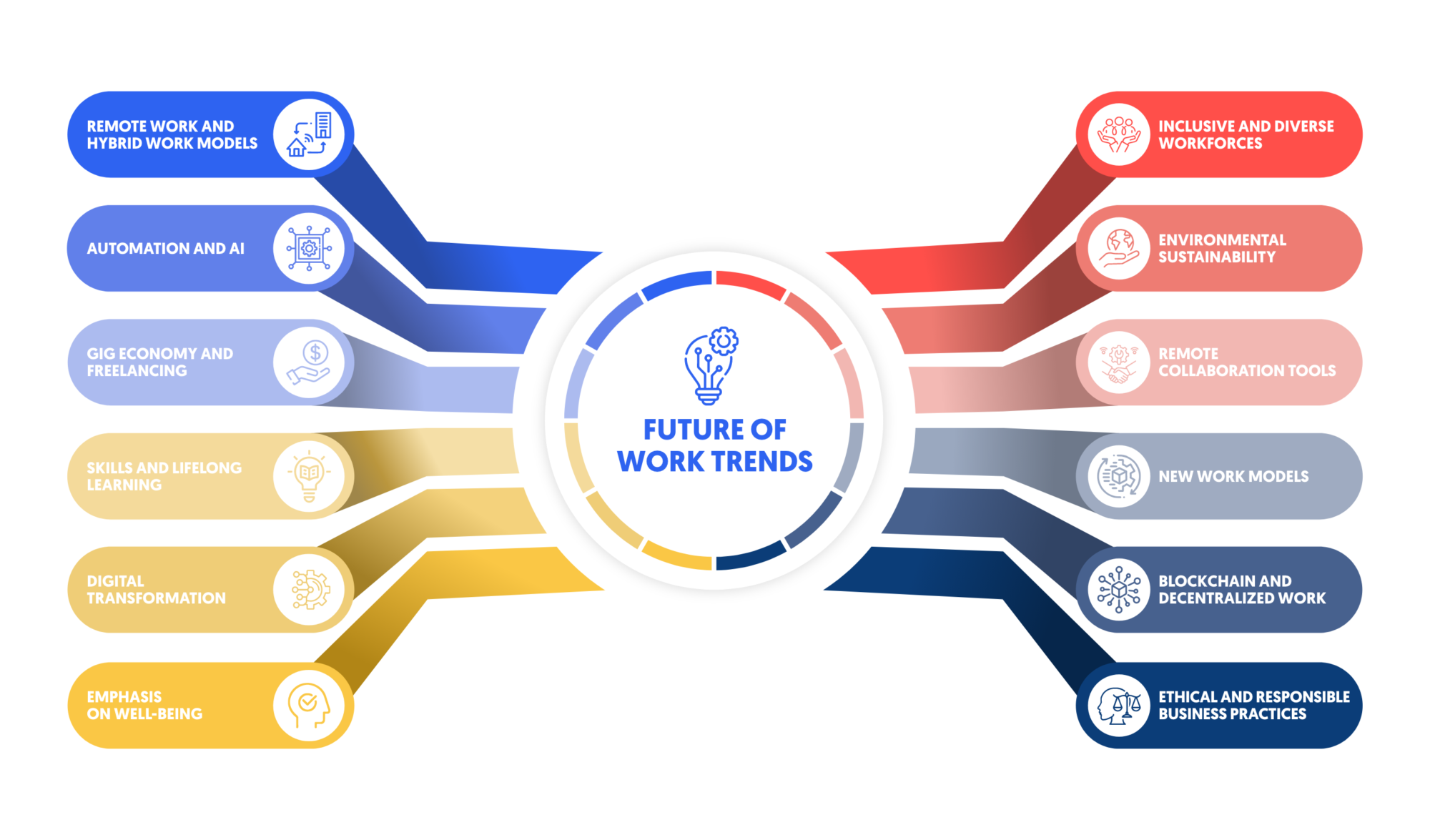The Future of Work is Here, and It's Not What You Think
The Future of Work is Here, and It's Not What You Think

The future of work isn't coming—it's already arrived. And contrary to popular belief, it's not about robots stealing your job or a dystopian workplace dominated by machines. Instead, we're witnessing a profound transformation in how we define careers, develop skills, and create value in an AI-powered economy. The real question isn't whether your job will disappear, but whether you're ready to evolve with it.
The AI Revolution Has Already Begun—And It's Invisible
According to recent Microsoft and LinkedIn research, 75% of knowledge workers are already using AI tools in their daily work—often without even realizing it. From smart email filtering to predictive analytics in spreadsheets, artificial intelligence has seamlessly integrated into our professional lives. Yet the conversation remains fixated on job loss rather than job transformation.

Around 70% of companies now use AI tools to handle at least one stage of their hiring process. These systems scan résumés, filter candidates, and make preliminary decisions before any human involvement. But this isn't science fiction—it's the reality of 2025, and understanding how to navigate it is critical to career success.
Jobs Aren't Disappearing—They're Transforming
The Oxford University study claiming 47% of jobs will "disappear" in the next 20 years sparked widespread panic. But history tells a different story. When ATMs were introduced in the 1980s, experts predicted the end of bank tellers. Instead, the number of bank branches quadrupled, and teller positions evolved to handle more complex customer interactions and sales.
Research from MIT economist David Autor confirms that technology has been a "great job-creating machine" for the past 140 years. The pattern is consistent: automation eliminates mundane tasks while creating opportunities for higher-value work. Insurance claims adjusters now use AI to instantly assess vehicle damage from photos, freeing them to focus on complex cases requiring human judgment. Radiologists use AI that reads X-rays twice as accurately as humans, allowing them to concentrate on diagnosis and patient care.
The Skills That Matter in the AI Age
The future belongs not to those who can compete with machines, but to those who can collaborate with them. Deloitte UK research identified 25 essential "human skills" that become increasingly valuable as technology advances:
- Empathy and Emotional Intelligence: Understanding human needs and building relationships
- Critical Thinking: Analyzing complex situations and making ethical judgments
- Creativity and Innovation: Generating novel solutions to emerging problems
- Communication: Translating complex ideas across diverse audiences
- Adaptability: Embracing continuous learning and personal reinvention

Career Paths Are Now Career Labyrinths
The traditional career ladder—study, work, retire—has been replaced by a dynamic model of continuous reinvention. The Bureau of Labor Statistics projects that Americans will have 12-14 different careers in their lifetime, not just job changes within the same field.
Today's professionals must embrace what experts call "personal reinvention"—the ability to let go of outdated identities and recreate yourself as opportunities emerge. This means your worth isn't defined by your job title but by what you know how to do and your professional reputation. Companies like Cisco, Yum Brands, and WL Gore have redesigned their management structures to facilitate rapid internal mobility, enabling employees to move between roles and departments faster than ever before.
The Rise of Contingent Work and the Gig Economy
Nearly 40% of US workers now operate on a contingent basis, supported by platforms like Uber, TaskRabbit, and Upwork. This shift represents both opportunity and challenge. While contingent work offers flexibility and autonomy, it also lacks traditional benefits like health insurance, paid vacation, and overtime protections.
Policy makers are exploring solutions including "shared security accounts" that allow workers to invest in their own career development across multiple employers, and even discussions of guaranteed basic income to support continuous reskilling and innovation.
How Organizations Are Adapting
Forward-thinking companies aren't replacing humans with machines—they're redesigning work to enhance both customer and employee experiences. Starbucks could automate coffee-making entirely but chooses not to, because the customer experience centers on human interaction. Wegmans coaches employees to put down their phones during customer interactions, using technology for back-office efficiency rather than front-line engagement.

Research shows 92% of companies believe their organizational structure needs to change, yet only 14% know how to fix it. The solution emerging across industries involves flattening hierarchies, empowering small teams, and building cultures that enable front-line innovation. This shift reduces the importance of traditional job titles and elevates the value of skills, experience, and adaptability.
Navigating the AI-Powered Job Search
With AI screening your résumé before any human sees it, job seekers must adapt their strategies. Success requires three key shifts:
1. Sharpen Your Inputs: Create résumés optimized for both AI and human readers. Strip away vague language and filler. Focus on relevant skills, measurable outcomes, and clean formatting that algorithms can parse easily.
2. Focus on Alignment: Tailor applications to match specific role requirements. AI systems reward clear demonstrations of fit, not generic applications blasted to hundreds of companies.
3. Quality Over Quantity: More applications don't improve odds if they're poorly targeted. Focus on roles that genuinely align with your strengths and invest time in meaningful applications rather than mass submissions.
The Productivity Paradox
Despite revolutionary technology, productivity growth since the iPhone's introduction has been the lowest of any technology era—lower even than periods following the invention of electricity and automobiles. The culprit? Constant distraction. We check our phones eight billion times daily, our attention spans have shrunk below that of goldfish, and the average American vacation time has dropped from 20.3 to 16.2 days since 1998.
The tools designed to make us more productive have instead made us perpetually engaged but not necessarily effective. Companies are responding with initiatives focused on mindfulness, limiting digital interruptions, and creating space for deep work—recognizing that human performance requires more than constant connectivity.

What You Can Do Today
The future of work demands active participation, not passive observation. Here's how to position yourself for success:
Embrace Lifelong Learning: Dedicate time to acquiring new skills. Platforms like Pluralsight, General Assembly, EdX, and Coursera offer accessible paths to technical proficiency. But don't neglect human skills—communication, empathy, and critical thinking remain irreplaceable.
Build Your Network: Attend industry conferences, join professional communities, and actively engage with peers in your field. Your professional reputation and connections often matter more than formal credentials.
Experiment with AI Tools: Don't fear technology—learn to leverage it. Familiarize yourself with AI assistants, automation tools, and emerging platforms in your industry. Early adopters gain significant advantages.
Stay Adaptable: View career changes as opportunities rather than setbacks. The ability to pivot, learn quickly, and apply knowledge across domains defines success in the modern workplace.
Frequently Asked Questions
Will AI really take my job?
AI won't take your job—but someone who knows how to use AI might. Technology eliminates repetitive tasks while creating opportunities for higher-value work. The key is developing skills that complement rather than compete with automation: creativity, critical thinking, emotional intelligence, and complex problem-solving.
How do I optimize my résumé for AI screening?
Use clear formatting without fancy graphics or unusual fonts. Include relevant keywords from the job description naturally throughout your résumé. Focus on measurable achievements with specific metrics. Ensure your document is ATS-friendly by avoiding tables, text boxes, and complex layouts that confuse parsing algorithms.
What's the biggest mistake people make about the future of work?
The biggest mistake is viewing it as a distant concern rather than a current reality. The future of work is already here. Waiting to adapt, learn new skills, or embrace change puts you behind. Success requires recognizing that continuous learning and personal reinvention aren't optional—they're essential survival skills in today's economy.
Is remote work here to stay?
Yes, but in hybrid forms. Most organizations are adopting flexible models that blend remote and in-office work. The pandemic accelerated a shift that was already underway. Companies now recognize that productivity doesn't require constant physical presence, but they also value in-person collaboration for innovation and culture-building. Expect flexibility to remain a core expectation for knowledge workers.
The Bottom Line
The future of work isn't something to fear—it's an opportunity to redefine your relationship with your career, skills, and professional identity. The transformation is already underway, reshaping industries, organizations, and individual careers in real-time.
Success in this new landscape requires abandoning outdated assumptions about job security, career progression, and the nature of work itself. It demands curiosity, adaptability, and a commitment to continuous growth. Those who embrace these principles won't just survive the future of work—they'll thrive in it.
The question isn't whether the future of work is coming. It's whether you're ready to lead through it.
Found This Helpful?
Share this article with colleagues navigating their own career transformations! Help spread the word about what the future of work really means—and how we can all prepare for it together.
📱 Share on LinkedIn | Twitter | Facebook | Email